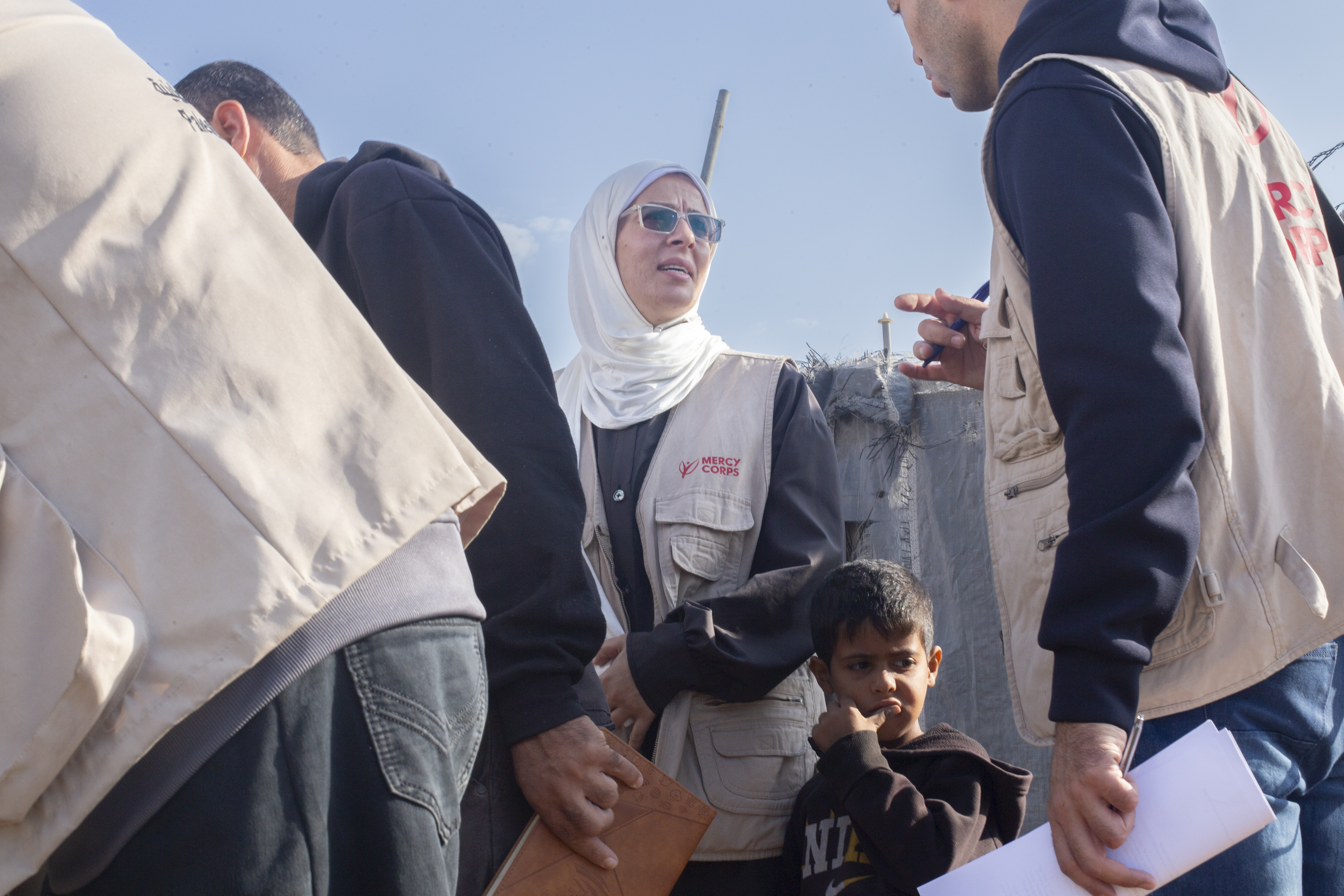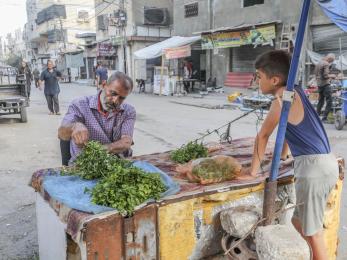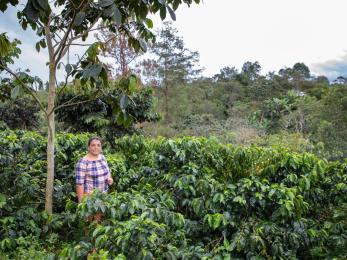A vision for tomorrow: 2023 and beyond
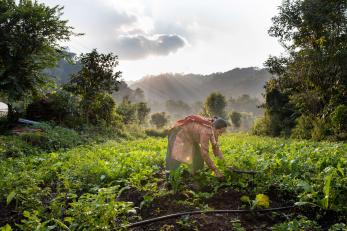
At Mercy Corps, the heart of our work is in supporting and centring the needs and aspirations of our partner communities in all we do. From providing essential supplies and services for communities affected by emergency crises, to achieving lasting, transformational change at scale—we’re working with communities to emerge from crisis and build towards a more resilient future in 2023 and beyond.
Resilience means people and systems can protect and improve wellbeing—such as incomes and access to food—in the face of shocks and stresses like conflicts and natural disasters. Some communities experience multiple challenges at the same time, which can overwhelm their ability to sustain progress. Mercy Corps is more committed than ever to helping people and communities at all points along the pathway to resilience to cope, adapt, and thrive.
In approaching our work through a lens of resilience, we’re prioritising outcomes that will protect and improve community wellbeing. By providing greater food security, water security, economic opportunities, and peace and good governance for communities affected by conflict and climate change, we can work together to create a brighter future for all.
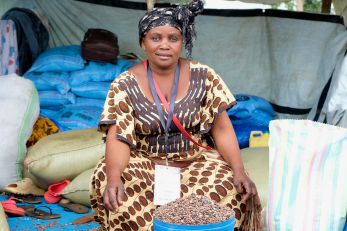
Food security
A global food crisis has emerged across the world, leaving hundreds of millions of people without food to eat. According to the World Food Programme, 828 million people are hungry and the number of people affected continues to grow due to climate shocks destroying crops and conflicts forcing people from their homes and livelihoods. In Ukraine, where the war has triggered a global food crisis and displaced more than 14 million people from their homes, Mercy Corps collaborates with local organisations across the region to deliver cash aid directly to families to buy food and essential supplies.
In the Democratic Republic of Congo (DRC), where almost 27.3 million people are acutely food insecure, many people are displaced due to violence. The DRC has the largest number of people in urgent need of food security assistance in the world. As part of Mercy Corps’ emergency response in the DRC, we have directly provided essential supplies and food and organised “food fairs,” at which participants receive vouchers to purchase what they need while also stimulating the economic recovery of local markets and vendors.
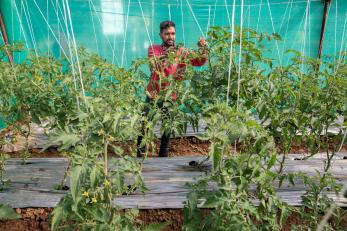
While providing urgent support to meet immediate food needs is critical, Mercy Corps also offers training for long-term recovery. In the DRC, participants received supplies and learned skills to grow permagardens that will provide food all year. Food security means that people will be well-nourished, with access to sustainably produced, safe, and nutritious food. As part of the Bhakari programme in Nepal, we support the training centre where farmers learn and share pest management techniques that do not rely on harmful pesticides to grow healthier crops.
“Pesticides are causing lots of damage, not only here but worldwide,” said Janak Adhikari, the coordinator at the local pest management centre in Panchadewal Binayak, Nepal. “I have made it my goal to reduce the use of pesticides, as it has negative effects, and I am keen to take it forward.”
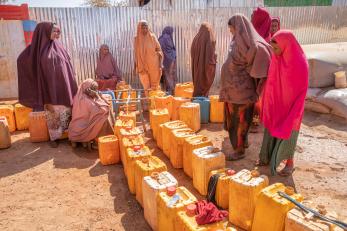
Water security
One in three people do not have access to safe drinking water across the world, and two out of five lack basic handwashing facilities. Our teams across the Horn of Africa are witnessing firsthand how water insecurity has devastated communities suffering from the worst drought they’ve seen. In Somalia, Mercy Corps is providing water points at camps for people who have been displaced after fleeing their homes in search of water and food. In addition to trucking in emergency drinking water for people as well as their livestock, we are rehabilitating dried-out irrigation channels, employing approximately 8,500 Somalis to complete this work so far.
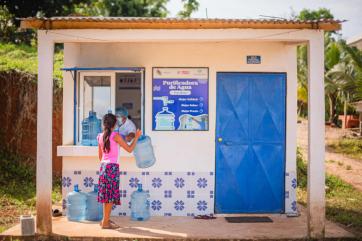
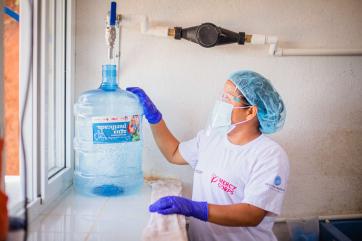
By supporting communities in building water security, more people will have equitable and sustainable access to clean and safe water to meet their everyday needs. In Alta Verapaz Department, Guatemala, Mercy Corps partnered with a local organisation and constructed water purification systems in nine communities to serve 906 families. Contaminated water frequently contributes to illness and disease, and we are working with local businesses in the area to ensure the water purification systems are sustainable for long-term use in the community.
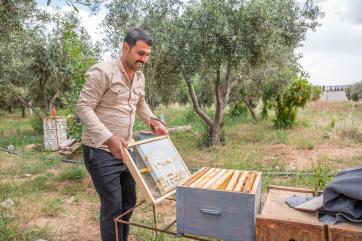
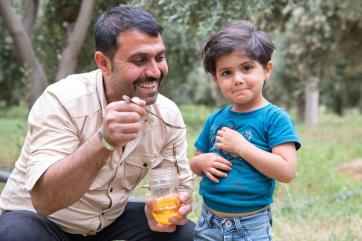
Economic opportunity
For the first time in decades, global extreme poverty is rising. For people experiencing poverty, they’re faced with little opportunities to prosper, unable to buy the things they need, find a decent job, or start a business. By supporting livelihood training and opportunities, Mercy Corps helps people to grow and sustain their income and assets, bringing stability to their families and communities around them. In Syria, where they have experienced more than a decade of conflict and instability, Anas has grown a sustainable business in his own backyard. “It has been my dream since I was a child, but I did not have the capacity to start this business,” said Anas, who received supplies and funding from Mercy Corps to sustain his beekeeping and honey production business.
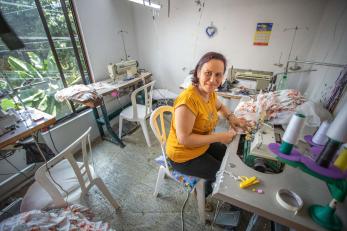
For refugees, finding and securing opportunities is even more difficult. Mercy Corps Colombia’s Advancing the Future programme offers cash grants and small business workshops for refugees from Venezuela, in addition to mental health support to learn coping skills for living in a new culture. Maria Nino opened a clothing business with training and cash assistance provided by Mercy Corps Colombia. “We have worked very hard and we haven’t seen the results yet,” said Maria. “but we know that little by little we’ll get there.”
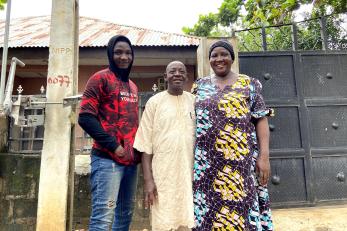
Peace and good governance
Violent conflict is at a 30-year high, according to the U.N. Conflict arises when weak sociopolitical, economic, and ecological systems break down. These breakdowns commonly result from poor governance, where institutions are unaccountable or unresponsive to their community needs. At the same time, increasing climate-related shocks disproportionately impact low-income countries, where the risk of violent conflict is already immense. The global climate emergency worsens conflict by increasing competition for scarce resources. The causes of conflict are complex and interconnected—and so are the solutions. Mercy Corps is committed to reducing and preventing violence, and strengthening the pillars of long-term peace. In Nigeria, our peacebuilding programme proactively addresses root causes of conflicts and fosters peace. Local community members like Felicia Ilujunka, from Lokoja, Kogi State, participate, and Felicia is known through her community for her involvement in local government groups for women and peacebuilding.
“I also spoke to my fellow women on the need to start with ourselves before preaching peace to others,” said Felicia, who helps mediate community conflicts and prevents violence from escalating due to existing tensions. Research has shown that the meaningful participation of women in conflict prevention and resolution helps create equitable, inclusive, and peaceful societies. When local community members, who know their neighbours best, are equipped with techniques to quell violence before it begins, it lays the foundation for peace and resilience today, tomorrow, and beyond.
Through our resilience approach, programmes, and partnerships, Mercy Corps is supporting communities in building long-lasting, sustainable change, especially in regions impacted by conflict and climate change. Greater food security, water security, economic opportunities, and peace and good governance are the building blocks to fostering stronger communities who can emerge from crises and build a brighter future. Day by day, we are all working together to cope and adapt to some of the toughest challenges around the world, so that all communities may thrive to their fullest potential.
